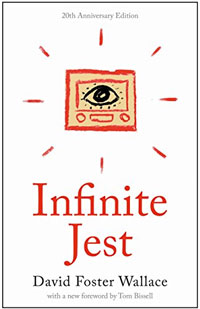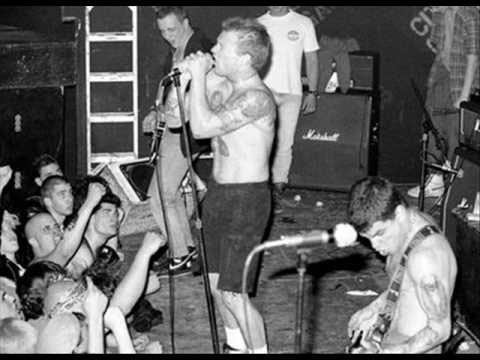In February 1996 late novelist David Foster Wallace released a modern masterpiece, Infinite Jest, uncovering a wellspring of contemporary criticism and psychological diagnosis. Granted his prose is maddeningly bratty to some readers and unapologetically obsessive, most of it is just damn good by my standards. Say what you will, his book is measured, careful, and thorough. One of the narratives features a movie plot description directed by protagonist Hal Incandenza’s late father James, a part optical scientist, part tennis phenom, part avant garde filmmaker, and all alcoholic. The film, Blood Sister: One Tough Nun, features an order of nuns “who’d been saved from Toronto’s mean, deadened streets by older tougher saved nuns.” The movie description snowballs from a Hollywood blockbuster to a description of Alcoholics Anonymous groups and, ultimately, an artistic cry for help.
The film’s yarn narrates the order of nuns’ imperative to save a younger woman and transfer their savior-debt onto her, not unlike “pay it forward” philosophies, or a variant of the golden rule. Blood Sister, the main character who’d been rescued by the Vice-Mother Superior, finds a freebasing Mohawk punk girl as her choice “project.” After a cliché getting-to-know-each-other film montage, and after the young girl begins to behave, Blood Sisters finds her murdered by the top nun, Mother Superior, the Vice-Mother Superior’s savior. An elaborate story ebbs and flows themes of betrayal, relapse, and retribution bloody and violent, until Blood Sister achieves revenge, in an ambiguously deep ending.

David Foster Wallace
Think about that: a nun with a gun. Almost like a chick with a dick! A topic as controversial as any—not to mention a provocative step above nuns with guns—that represents one permanent feature of modern hardcore, namely, that of constant criticism and revolution from its foundations using the very same foundations. More conservative critics fatuously eat away this ethos, accusing one of “biting the hand that feeds,” and being ungrateful, let alone evoking gender-political polarization. In reality, this feature works wonders by burning away dead wood wherever applied.
Granted, nuns with guns softens the schoolyard sniggering of teens, and pleases the protest polarizing of young adults whenever trans issues are brought up. Gender politics aside these connotations didn’t stop Los Angeles based band Dangers from blowing their (at times) bratty and obsessive opinions in a fervent prayer to knock over hardcore punks weakest trends in the lyrics, “You sing your songs of hypocrites like nuns with guns or chicks with dicks.” A devastating critique measured carefully, thoroughly, equally, and damnably good as Wallace nails many bands coffins shut in the song “Power Chord Blues.”
 Although a wonderful poseur furnace, subverting is no value to build anything cultural behind, including genres. Because hardcore is both a conservative and progressive genre, Dangers criticism reflects an unbalanced hip cynicism toward originality that both misses and denies hardcore’s dualistic heart.
Although a wonderful poseur furnace, subverting is no value to build anything cultural behind, including genres. Because hardcore is both a conservative and progressive genre, Dangers criticism reflects an unbalanced hip cynicism toward originality that both misses and denies hardcore’s dualistic heart.
Let’s take down these “guitar center punks” first. According to Dangers, hardcore is in a baleful state, riddled with hypocritical, ineffectual, unoriginal, mindless pablum. Bands that “mix Cro-Mags with The Clash” sing about “straight edge and friends” unthinkingly. If they don’t already get a massive budget, their excess marketability feedbacks more than weak, boring, transparent music, it exhausts Dangers patience, fueling an unrealistic need for originality building in proportion a vague feeling of “I want more.”
Hardcore has no soul, no sack, and no mind, just regurgitated tradition feedbacking uncontrollably: that is the problem. Admittedly negative, this also implies hardcore was soulful, bold, conscious, smart, and innovative, but modern styles fell away from this definition. It’s a metaphysical story of the corrupt ideal, the fall of man, and the tyrannical father.
Dogmatically, hardcore’s existence is predicated on no excess fat both in song structure and lyrics. It is a strict definition of rules that make it unique. That hardcore has, and continues to change is no secret. Music in general must evolve or else it dies in monotony. Down the line since the genre’s inception, the most hardcore of music did not sound like hardcore but had the right attitude. Conversely, the bands that sounded more hardcore tended not to act “hardcore.” In response to this development, the genre split its heart in two: an active component and a descriptive component. In other words, it’s aesthetic surface continually changes through genre transgressions, writing influences, and fashion bubbles, while its spiritual attitude, exemplified in “Positive Mental Attitude” (PMA), and a “Do It Yourself” (DIY) imperative, cements its in alignment with these philosophies. When the music changes compromise brevity and concision, hardcore betrays itself for the sake of innovation. A band adds an extra chorus and it becomes something else; add a solo, tremolo picking, and hardcore becomes metal. For example, a new genre pops up with the suffix “-core” as if only the spirit were left intact, resulting in “metalcore.”
Because hardcore cut its teeth on the streets in Warzone’s Don’t Forget the Struggle, Don’t Forget the Streets; Cro-Mag’s Age of Quarrel; and Breakdown’s Blacklisted (among many others), suburban fans moved the real street struggle inward, and neurosis set in. Much like Blood Sister’s punk initiate, the damaged tough heroes, and poets of the streets rescued the genuine suburbanites. In looking for oppression, such initiates searched inward to mental health, and outward to systems of blame. The disingenuous couldn’t find the struggle just beneath the surface, but were mentored in outrage and anger, so they manufactured it. Hardcore needs real struggle to activate its power. Without, it is hollow, soulless, sackless and shallowly derivative.
Looking above, Dangers observes in all their cleverness the same crises of meaning Infinite Jest’s Hal observes in his father’s film. If the real struggle isn’t uncovered, then no sack grows, and no mind develops between the ears. Hardcore easily feedbacks traits that—in the words of Hal about Blood Sister—"so grotesquely [exaggerate] the formulaic schticks of the genres that they [become] ironic…parodies of the genres: sub/inversions of the genres…” or nuns with guns contradicting themselves. Much like a depressed person, this attitude of inherent meaninglessness appears all encompassing and endless, an attitude reflected in “Power Chord Blues,” as evidence piles up through their cynical filters.
Actually, hardcore transgressions root back to the early ‘80s, almost immediately after the genre began, breeding some of the best bands of the 1990s and 2000s. Cro-Mags’s Age of Quarrel bred Best Wishes, arguably influencing Biohazard’s Urban Discipline; Corrosion of Conformity releases Technocracy; and Neurosis blossoms Pain of Mind to Souls at Zero. These bands took hardcore to its limits and transgressed properly.

Cro-Mags
Uninhibited, proper transgression takes the music wherever it wants to go while the focused, sincere honesty stays with a healthy shine of anger and frustration. Sincerity deals with different forms of politics, personal issues, street problems, and ideological viruses by using practical, within reach, and applicably wise commands. It is, to borrow a phrase in my Lotus review, “a youthful voice to folk wisdom in the modern age.” Ceremony, Turnstile, Angel Du$t, No Warning’s Torture Culture, and Title Fight’s "Secret Society" are the new breed of transgressors, preserving hardcore properly.
Also when a hardcore album matches hardcore’s definition it’s sublimely listenable and uncontrollably chantable. Mantras announce themselves and people come together at shows chanting together to the point where the audience becomes the focus on stage, not the musicians. It is a willing recognition that without the audience the musicians would not exist. It is a mutual respect between artist and audience in full transparency—a truly modern approach to authority. Bands like The Rival Mob, Wisdom in Chains, and H2O, among others, work wonders within hardcore’s strict boundaries.
Upon finishing Infinite Jest, Hal’s opinion on Blood Sister overlaps with Dangers critique of hardcore. As each stratum of Infinite Jest sediments Hal’s personality becomes not a result of wisdom but a defensive cynical filter. His view of his father’s work misses the point and labels it as inherently meaningless, when in fact it was about the real damaging and difficult realities of alcoholism. Similarly when hardcore perambulates on social friend politics it doesn’t mean it is cliché, disingenuous, or greedy; nor does it need to eat itself from the inside out. What resulted was a change of playing field from obvious urban corruption, decay, and violence, to subterranean suburban neurosis, and aimless unoriginality. The root cause is not immediately obvious and oftentimes an over protective guardian misses obvious wisdom, and takes it for granted.
Neurosis has spread too thick for activism to birth wise change. The decisive action revolves around personal everyday choices the individual makes.
Techniques of anger, revolution and frustration are used cynically by a generation born out of excess comfort and not enough palpable enemies to direct a justified malaise. The tooth and nail struggle needed for any claim of legitimacy and sincerity is so hidden and absorbed into the fabric of modern life it begs the question whether or not suburbs have it too nice. (I’m trying very hard not to sound like an older generation complaining about how the youngsters complain too much, work too little and have it too good.) In an active rebirth an imperative arises to refrain from comfort to embrace difficulty, and act in the most conscious way. The secret word is “act.” Just pointing out isn’t enough; and activist action doesn’t address a problem so personal. Neurosis has spread too thick for activism to birth wise change. The decisive action revolves around personal everyday choices the individual makes. Do I watch 6 hours of TV or do I go for a run and cook a meal? Do I follow the path carved out for me, or do I whack the bushes and make my own. Up to a certain point, the more obstacles the better. Hardcore praises the iconoclastic individual. When a band betrays the sincerity of the expressive outsider taking on the world of status quo to clichés nothing is more blasphemous than a weak mind playing the part of bravery to sell records, or gain fame however wide or narrow. Fame is desirable on all levels of scale, from neighborhood to national.
This pull toward familiar pre-carved paths arises from undefined problems and a uniquely modern unoriginality, stemming out of separation anxiety from comforts biologically encouraged to stick with us, and lack of self-knowledge. In other words, our comforts have become too available and efficient, changing and concealing hardcore’s main fuel: struggle.




